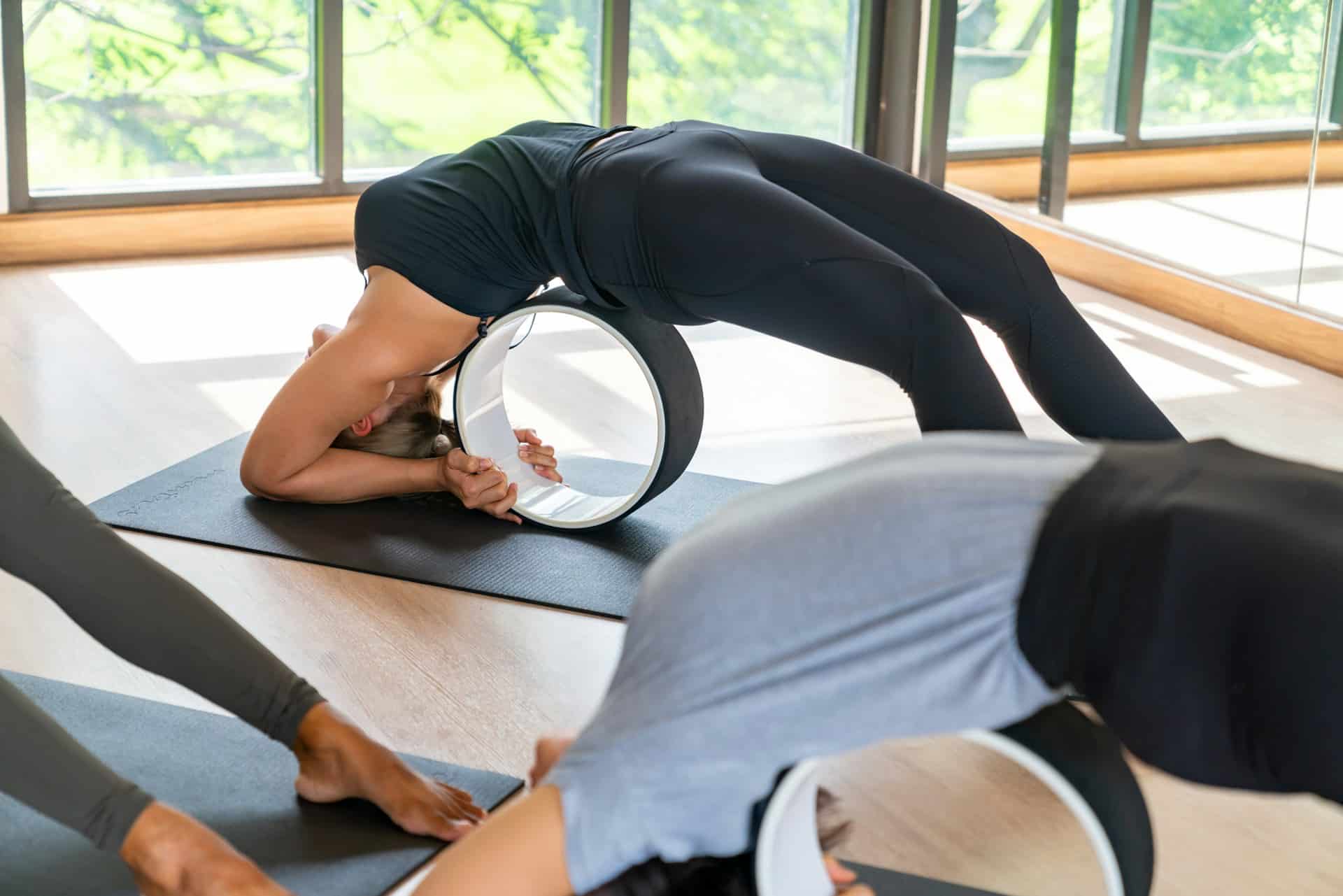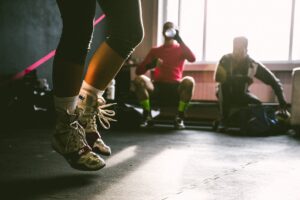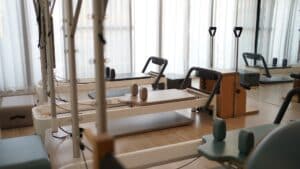Cycling is an exhilarating and effective way to stay active and maintain physical fitness. While cycling provides numerous health benefits, such as improved cardiovascular health, increased endurance, and enhanced mental well-being, it often focuses primarily on specific muscle groups. To achieve well-rounded fitness and prevent muscle imbalances that can impede cycling performance, it’s crucial to integrate complementary workouts, such as Reformer Pilates, into your training regimen.
In this article, we’ll discuss how incorporating Reformer Pilates into your cycling training can significantly enhance your performance, build strength, and reduce injury risk. We’ll explore specific ways in which Reformer Pilates addresses common imbalances and weaknesses among cyclists and how it contributes to developing stability, flexibility, and overall physical resilience.
By incorporating Reformer Pilates into your cycling routine, you can unlock your full potential as an athlete, boost your performance, and enjoy a more balanced, injury-resistant body.
1. Addressing Muscle Imbalances for Cyclists with Reformer Pilates
Cycling predominantly engages specific muscle groups, such as quadriceps, hamstrings, and glutes. This emphasis can lead to imbalances and weaknesses in other areas of the body, potentially affecting cycling performance and increasing injury risk. Reformer Pilates provides an ideal solution, targeting under-utilised muscles and promoting overall muscular balance and stability.
Strengthening Core Muscles
A strong core is essential for maintaining proper cycling posture and efficiently transferring power while pedalling. Reformer Pilates focuses on core engagement, with every exercise designed to activate and strengthen abdominal muscles, lower back, and hip stabilisers.
Developing Upper Body Stability
Cyclists often neglect upper body strength training, which can lead to muscle imbalances and reduced overall stability. Incorporating Reformer Pilates into your training regimen can help strengthen your upper body and improve stability on the bike, further enhancing cycling performance.
2. Enhancing Flexibility for Cyclists with Reformer Pilates
Improved flexibility is another significant benefit offered by Reformer Pilates, essential for cyclists to maintain optimal posture and pedalling efficiency. Incorporating Pilates into your training routine can help increase your range of motion and reduce the risk of injury.
Lengthening Muscles
Reformer Pilates exercises emphasise controlled movements and stretches, promoting muscle lengthening and increased range of motion. Improved flexibility can help prevent injuries caused by tight or shortened muscles, such as strains and muscle tears.
Optimising Pedalling Efficiency
Increased flexibility gained through Reformer Pilates can lead to more efficient pedalling during cycling. By improving your range of motion, Pilates practice allows for smoother, more powerful movement on the bike, leading to better performance and reduced fatigue.
3. Building Functional Strength for Cyclists with Reformer Pilates
Reformer Pilates is a powerful tool for developing functional strength, a critical aspect of improved cycling performance. By focusing on full-body exercises and promoting muscle balance, Reformer Pilates helps cyclists build a strong foundation for a more efficient and powerful ride.
Full-Body Strength Workouts
Reformer Pilates classes incorporate a wide range of exercises targeting different muscle groups, ensuring a balanced full-body workout. As a result, cyclists can benefit from a well-rounded strength training routine that directly translates to enhanced cycling performance.
Improved Power and Speed
Building functional strength through Reformer Pilates can lead to increased power and speed on the bike. The focus on core strength, muscle balance, and coordination means that each pedal stroke becomes more efficient and powerful, allowing for faster cycling times and improved race performance.
4. Reducing Injury Risk for Cyclists with Reformer Pilates
Injury prevention is vital for any athlete, and incorporating Reformer Pilates into your cycling training can significantly reduce the likelihood of injury. The combination of improved muscle balance, flexibility, and core strength enables a more resilient body, better equipped to withstand the demands of cycling.
Lowering the Risk of Overuse Injuries
Cycling can place a significant strain on specific muscle groups and joints, increasing the risk of overuse injuries. Reformer Pilates addresses this issue by focusing on strengthening the entire body, leading to a more balanced distribution of stress and a reduced risk of injury.
Faster Recovery
Reformer Pilates not only strengthens muscles but also promotes improved circulation and facilitates better muscle recovery. Incorporating Pilates into your training routine can help expedite your recovery process, allowing you to maintain consistency in your cycling program.
Unlock Your Cycling Potential with Reformer Pilates at Element Fitness
Reformer Pilates offers an invaluable addition to your cycling training, addressing common weaknesses and imbalances while enhancing flexibility, core strength, and functional power. By integrating Reformer Pilates into your routine, you can unlock your full potential as a cyclist, achieving faster times, improved race performance, and a more enjoyable riding experience.
At Element Fitness in Nunawading, our expert trainers are dedicated to helping you discover the transformative power of Reformer Pilates and how it can elevate your cycling performance. Our supportive, motivational environment ensures you receive the guidance and encouragement needed to achieve your fitness goals while enjoying the journey.
So strap on your cycling shoes, step onto the Reformer, and prepare to take your cycling to new heights with Reformer Pilates at Element Fitness. Your journey to becoming a stronger, faster, and more resilient cyclist starts here!




